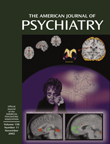“Rehospitalization” Versus “Recidivism”
To the Editor: The term “recidivism” is often used in the psychiatric and mental health literature to mean “rehospitalization.” This is puzzling, since the concept of recidivism generally refers to criminal reoffense. For example, the Oxford English Dictionary defines recidivism as “the habit of relapsing into crime” (http://dictionary.oed.com/cgi/entry/00199164). Merriam-Webster’s Collegiate Dictionary defines recidivism as “a tendency to relapse into a previous condition or mode of behavior; especially: relapse into criminal behavior” (http://www.m-w.com). Similarly, a well-known web site uses the following definition: “a tendency to lapse into a previous condition or pattern of behavior; especially, a falling back or relapse into prior criminal habits…. A recidivist is one who relapses or who is an incorrigible criminal” (http://www.dictionary.com/wordoftheday/archive/2001/03/08.html). While some dictionaries recognize the use of the term in the psychiatric literature (in one instance, citing the phrase “a study of recidivism in mental patients”) (http:// collections.chadwyck.com/mwd/htxview?template=basic. htx&content=frameset.htx), clearly, the primary meaning of recidivism refers to criminal reoffense.
This is supported by a review of the medical literature. PUBMED was accessed to identify articles with the words “recidivism,” “readmission,” “rehospitalization,” “rehospitalizations,” or “rehospitalized” in the title. Of the 291 articles with “recidivism” in the title, 162 (55.7%) dealt with criminal behavior or reoffense by mentally disordered individuals, 47 (16.2%) were about psychiatric readmission, 34 (11.7%) were about medical readmission, and 23 (7.9%) were about substance abuse treatment. (Thirteen [4.5%] were in a foreign language and thus were not further analyzed, and 12 [4.1%] were on other topics. These were combined for statistical analysis.)
Of the 535 articles with “readmission,” “rehospitalization,” “rehospitalizations,” “or “rehospitalized” in the title, 282 (52.7%) were about medical readmission, 169 (31.6%) were about psychiatric readmission, and 16 (3.0%) were about substance abuse treatment. None dealt with criminal behavior or reoffense by mentally disordered individuals. (Fifty-nine [11.0%] were in a foreign language, and nine [1.7%] were on other topics.) The difference in distribution between “recidivism” and this group of words was significant (χ2=410.41, df=4, p<0.001).
Thus, in this group of articles, 21.8% (N=47) of the 216 articles on psychiatry used the word “recidivism” in the title, compared to 10.8% (N=34) of the 316 articles dealing with the rest of medicine. An article on psychiatry was twice as likely to use the word “recidivism,” with its connotations of criminality, in the title. Given the association between the word “recidivism” and criminality, I suggest that as a means of decreasing stigmatization of psychiatric patients, we should avoid the word “recidivism” when what we mean is “rehospitalization.”
Reprints are not available; however, Letters to the Editor can be downloaded at http://ajp.psychiatryonline.org.



